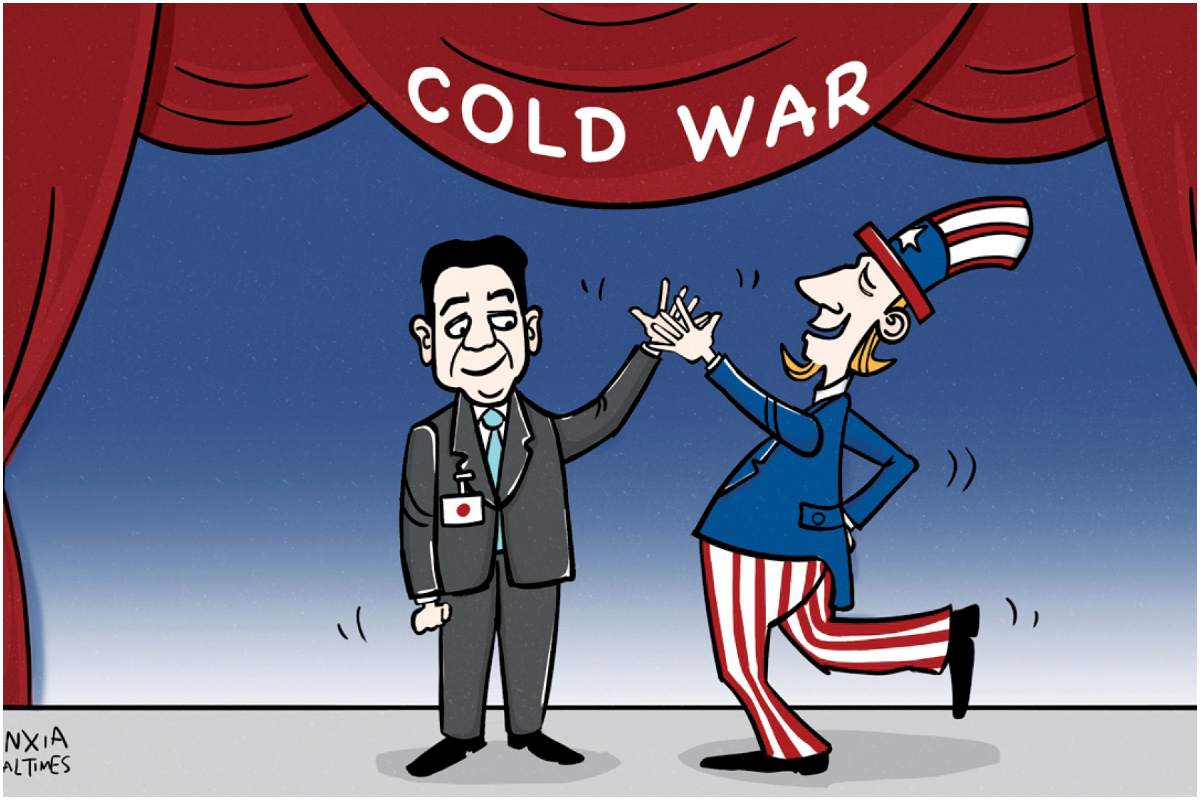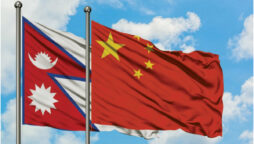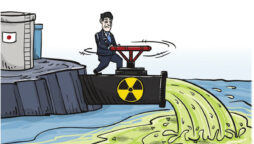
Old Cold War type relations do not serve Japan
TOKYO: The recent international tour of Japanese Prime Minister Fumio Kishida turned out to be one of the most remarkable events of early 2023. The trip, which included a number of capitals in Europe and in North America, was officially presented as a step in preparing for the G7 Summit to be held in June in the Japanese city of Hiroshima.
However, Kishida’s diplomatic marathon was also an opportunity to introduce the latest changes in the Japanese foreign and security policy to key Japanese partners, allies and, arguably, even to its opponents.
Indeed, the trip took place right after Japan made significant revisions in its 2013 National Security Strategy and in related operational documents. Across the next five years, Tokyo’s defence spending is set to double, which will make Japan’s defence budget the third highest in the world — after that of the US and China.
Even more importantly, the change implies a clear shift from focusing on exclusively defensive capabilities to acquiring powerful modern offensive systems, including strategic ballistic and cruise missiles. Russia, along with North Korea, is mentioned in the new documents as a direct “security threat,” while China is referred to as a formidable “security challenge.”
The shift was hardly a surprise for Moscow. After yet another embarrassing failure to make any progress in resolving the territorial dispute between Russia and Japan, the Kremlin should have been prepared for a much tougher Japanese approach to Russia compared to that of late prime minister Shinzo Abe. Moreover, it is well understood that the current global geopolitical dynamic, including the Russia-Ukraine conflict and the US-China tensions around the island of Taiwan, forces Japan to pay more attention to its defence. That implies almost by definition strengthening military ties with the United States, which for a long time remains the only security provider for Tokyo.
The ongoing shift in Japan’s foreign and security policies became clear already in June 2022, when Kishida became first Japanese prime minister to attend a NATO summit. In exchange for his support of NATO’s confrontation with Russia, the Japanese leader received assurances that the alliance would shoulder Tokyo’s strategic interests in the Indo-Pacific region.
The meetings that Kishida had in Washington confirms the overall trend: Japan is getting closer than ever to the US and to NATO, while also becoming further and further away from Russia and from China.
There is no doubt that the Biden administration should be happy about this trajectory. Predictably, Kishida received all the appropriate confirmations from the White House that US security commitments to Japan remain rock hard. In exchange, US defence contractors can now count on new multibillion-dollar contracts from Tokyo. The two sides apparently also agreed on proceeding with new sanctions against Moscow and on further limiting Beijing’s access to sensitive Western technologies.
It remains to be seen how the Kishida government is going to fund its new, unprecedentedly ambitious defence posture. Military spending of 41 trillion yen ($318 billion) in five years is not pocket money, especially in a country that has already accumulated a national debt amounting to 250 per cent of its GNP. A likely new increase in taxes is not going to give Kishida a boost in his approval ratings at home.
However, let’s assume that the declared revolution in the Japanese security policy is successful. Still, some questions about Japan’s continuous bet on the United States remain. First, there are evident uncertainties regarding the sustainability of “rock hard” security pledges from the US. The Biden administration is likely to stay fully committed to the Japanese security, but nobody knows for sure what might happen after the US presidential elections next year. What if there is a new Donald Trump in the White House, who looks at the US security assistance to its allies as a kind of fee-for-service arrangement? The US society remains deeply divided, and it is hard to expect a long-term consistent foreign policy from a divided society.
Second, is it really in the long-term interests of Japan to contribute to building a new rigid bipolarity in global politics? Many other major powers — India, Brazil, Turkey, Indonesia, Egypt, to name a few — are trying to use the current turning point in international developments to articulate their independence or at least their high degree of autonomy in world affairs. Each of these countries might have unresolved issues with China, each of them might have reservations about Russia’s actions in Ukraine, but they are not ready to take a rigid black-and-white approach to the international system.
In other words, they all try to look into the future, while Japan apparently tries to drive its foreign policy forward while looking backward — to the old Cold War type relations with the US in a rapidly changing environment.
The future of Japan cannot be based only on its partnerships with the US and NATO, as important as this partnership is for Tokyo. This future also depends on Japan’s relations to its Eurasian neighbours. It’s also worth mentioning that Japan joined the Regional Comprehensive Economic Partnership (RCEP) together with China and 13 other Asian-Pacific countries. The new economic block includes a broad variety of democracies and autocracies, of capitalist and socialist states, of republics and monarchies.
Though the degree of trade liberalisation within RCEP might look modest for the time being, it is expected to give Japan economic benefits at the level of at least 1 per cent of the country’s GNP. Maybe, such initiatives deserve more attention from the part of the Japanese foreign policy establishment. In a long run, a more diversified foreign policy portfolio would be beneficial for both Japan and its neighbours.
Courtesy: Global Times
Catch all the The Globe News, Breaking News Event and Latest News Updates on The BOL News
Download The BOL News App to get the Daily News Update & Live News.











 Read the complete story text.
Read the complete story text. Listen to audio of the story.
Listen to audio of the story.